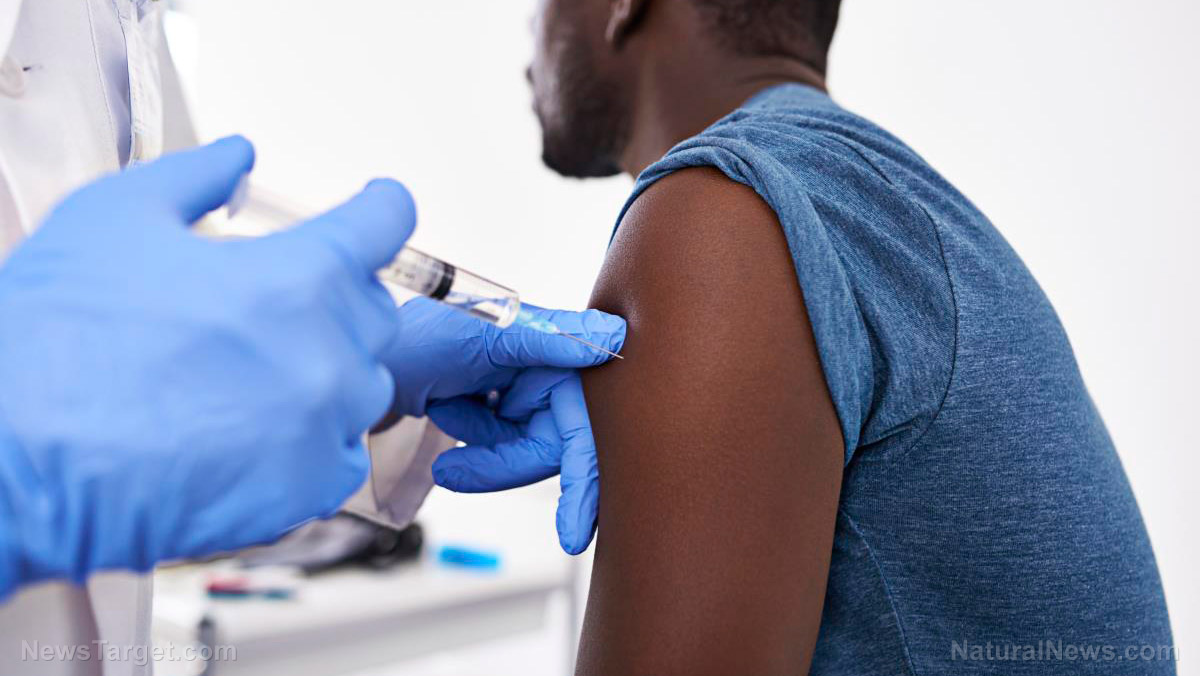FDA updates mRNA vaccine warnings, confirming “extremely high” myocarditis risk in young men
07/12/2025 / By Ava Grace

- The FDA has mandated new safety labels for Pfizer and Moderna’s mRNA COVID-19 vaccines, explicitly warning of an “extremely high” risk of myocarditis (heart inflammation) in young men aged 12 to 24, reversing prior claims that cases were “rare and mild.”
- Cardiac MRI studies revealed that 60 percent of young men with post-vaccine myocarditis showed persistent heart scarring or inflammation (late gadolinium enhancement) months after diagnosis, raising concerns about permanent damage.
- The FDA acknowledges 27 myocarditis cases per million young men, but critics argue this is likely underreported due to weak surveillance and historical reluctance to link adverse events to vaccines.
- After years of downplaying risks, the FDA now requires manufacturers to disclose unadjusted data on myocarditis, including risks for children as young as six months—a move signaling increased transparency amid accusations of past suppression.
- Vaccine proponents argue COVID-19 poses higher myocarditis risks than vaccination, but critics highlight demographic disparities (healthy young men disproportionately affected) and lingering distrust in institutions accused of obscuring vaccine harms.
The Food and Drug Administration (FDA) has taken an unprecedented step by updating safety labels for Pfizer and Moderna’s mRNA Wuhan coronavirus (COVID-19) vaccines. The updated labels now explicitly warn of an “extremely high” risk of myocarditis – a potentially life-altering heart condition – in young men.
The decision announced July 1 follows mounting evidence of persistent cardiac damage in males aged 12 to 24, contradicting earlier federal assurances that such cases were “rare and mild.” This move marks a pivotal moment in the national debate over vaccine transparency and the long-term consequences of rushed pandemic policies.
The FDA’s label update is the latest step by officials working under Health Secretary Robert F. Kennedy Jr. to restrict or undercut the use of vaccines. Under the leadership of Commissioner Marty Makary, the regulator restricted annual COVID-19 shots to seniors and other Americans at higher risk from the virus. (Related: Japanese study: Even mild myocarditis from COVID-19 vaccines can cause FATAL ARRHYTHMIAS.)
The updated warnings stem from alarming cardiac MRI findings in young men who developed myocarditis after vaccination. Studies funded by the agency reveal that 60 percent of affected patients still exhibited signs of myocardial injury – in particular late gadolinium enhancement (LGE) – five months after their initial diagnosis. LGE indicates scarring or inflammation that could lead to permanent heart damage, raising concerns about long-term cardiovascular health in this demographic.
The revised incidence rate of 27 myocarditis cases per million young men is now officially acknowledged, though critics argue this figure is likely underreported due to passive surveillance systems and historical reluctance to link adverse events to vaccination.
Myocarditis (inflammation of the heart muscle) and pericarditis (inflammation of the tissue that surrounds the heart) are driven by an immune system on high alert, set off by inflammatory proteins, research found in 2023. Myocarditis causes fatigue and shortness of breath, while pericarditis leads to chest pain.
Kennedy is pushing for stricter limitations on booster recommendations
The FDA’s label update is unlikely to quell the controversy. Vaccine skeptics, including Kennedy himself, are pushing for stricter limitations on booster recommendations. Meanwhile, mainstream public health figures warn that overemphasizing rare side effects could deter vaccination altogether.
For years, federal health agencies downplayed myocarditis risks, emphasizing that the benefits of mRNA vaccines outweighed potential harms. But the FDA’s latest action directly contradicts those earlier claims.
The regulator now mandates that manufacturers disclose unadjusted incidence rates and MRI-confirmed injuries in their prescribing information. The updated fact sheets now extend to emergency-use vaccines for children as young as six months, signaling a broader acknowledgment of risk.
This reversal comes amid intensifying scrutiny over whether officials suppressed safety concerns to maintain public compliance with vaccination campaigns. The FDA’s presentation, publicly available online, underscores a stark departure from past messaging – one that finally prioritizes data over dogma.
The FDA’s revised warnings represent a watershed moment in the pandemic’s legacy. For young men and their families, the updated labels offer a belated but necessary caution.
Visit VaccineDamage.news for more similar stories.
Watch Jefferey Jaxen and Del Bigtree reporting about vaccine-induced cardiac inflammation occurring 3,000 times the normal rate in this video.
This video is from the SecureLife channel on Brighteon.com.
More related stories:
Cardiologist says no case of COVID-19 vaccine-induced myocarditis is mild.
Study finds possible link between Pfizer’s COVID-19 vaccine and myocarditis in children.
CDC study: COVID-19 mRNA shots increase risk of myocarditis by 13,200%.
Sources include:
Submit a correction >>
Tagged Under:
big government, cardiac inflammation, covid-19, Food and Drug Administration, Heart, heart disease, immunization, myocarditis, vaccine damage, vaccine injury, vaccine wars, vaccines, Wuhan coronavirus
This article may contain statements that reflect the opinion of the author




















